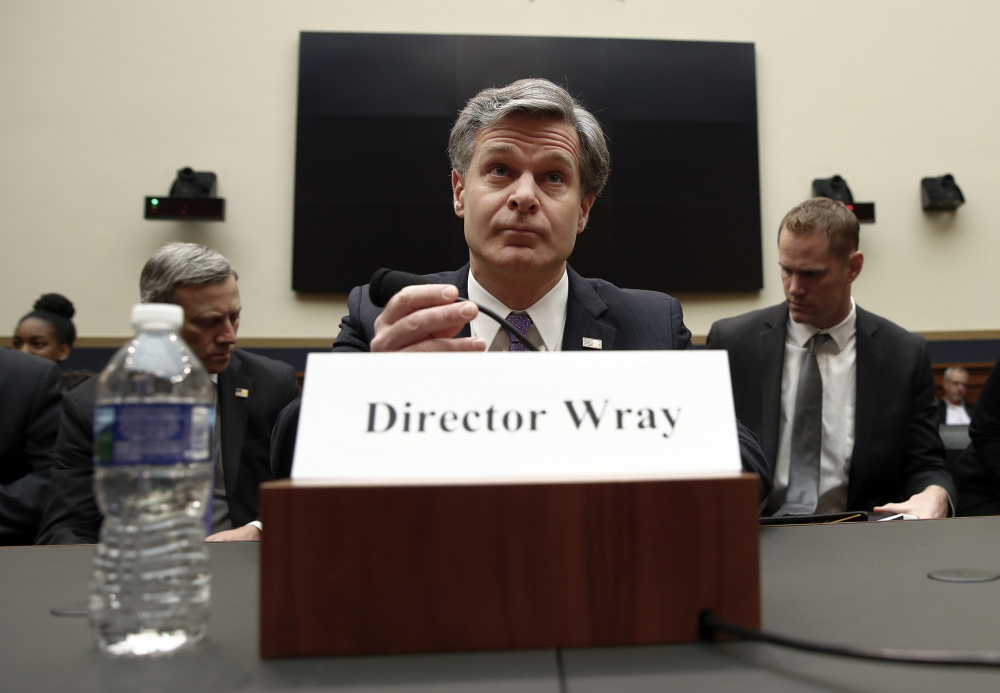WASHINGTON –– Radicalized individuals, not teams of trained operatives, are the terrorist threats that most worry federal law enforcement agencies in the coming year.
Stopping them is difficult, since many give few signs that they are contemplating an attack and they often blend in with the population.
FBI Director Christopher Wray has said the FBI considers the most pressing domestic terrorism threats to be homegrown violent extremists radicalized by Islamic State and other radical Islamist groups, and lone-wolf attackers who aren’t connected to any other people or groups. Cultists, “sovereign citizens” who don’t believe government constraints apply to them and those motivated by racial hatred are a lesser but persistent concern, the FBI says.
Matthew Heiman, a former lawyer with the National Security Division at the Justice Department, agrees with Wray that homegrown Islamist extremists are the top threat.
“If you look at the numbers, the repetition and the consistency, I think that’s No. 1 by a long stretch,” Heiman said, citing attacks in San Bernardino, Calif., Orlando, Fla., Fort Hood, Texas, and New York City. While there are other attacks every year, Heiman said other movements are not as consistent.
Some object to the categories as artificial and counterproductive.
“There’s this focus on categorizing ideology, rather than focusing on methodology for committing these acts of violence, said Michael German, a former FBI official who worked in counterterrorism. “It springs from this necessity to categorize in order to distribute resources in an organized way, but we then come to believe those categories are real. This whole concept of a radical Islam, which includes very different groups such as ISIS, Al-Qaida, Hezbollah … it has nothing to do with keeping Americans safer.”
Still, while there may be disagreement about the framing, no one questions that the United States needs to be on the lookout for potential attackers. And the FBI’s view will carry the day when it comes to allocating money and manpower to the task.
Send questions/comments to the editors.



Success. Please wait for the page to reload. If the page does not reload within 5 seconds, please refresh the page.
Enter your email and password to access comments.
Hi, to comment on stories you must . This profile is in addition to your subscription and website login.
Already have a commenting profile? .
Invalid username/password.
Please check your email to confirm and complete your registration.
Only subscribers are eligible to post comments. Please subscribe or login first for digital access. Here’s why.
Use the form below to reset your password. When you've submitted your account email, we will send an email with a reset code.